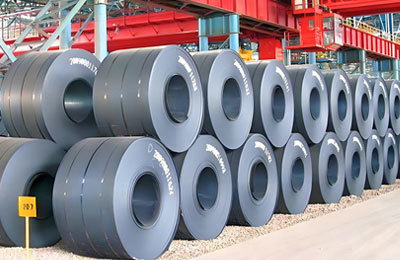Fast delivery
Global supplier
Innovative solutions
Exploring the Versatile World of Steel Pipe: A Comprehensive Guide
Sep 20,2025
Introduction to Steel Pipe
When it comes to construction and engineering, few materials are as indispensable as Steel Pipe. This marvel of modern manufacturing has become a staple across industries, from oil and gas to water supply systems. But what exactly makes this sturdy pipe so special? Buckle up as we take a deep dive into the multifaceted world of steel pipe!
What is Steel Pipe?
Simply put, Steel Pipe is a tubular section or hollow cylinder made of steel, typically used to transport fluids and gases. These pipes come in various sizes, thicknesses, and grades, which make them suitable for a plethora of applications. It's like the Swiss Army knife of materials—versatile and reliable!
Types of Steel Pipe
Now, let's get down to the nitty-gritty. There are several types of Steel Pipe, each with its unique characteristics:
- Seamless Pipes: These beauties are made from a solid round steel billet, which is heated and molded. The absence of seams means they can withstand higher pressures. Talk about robust!
- Welded Pipes: Produced by welding together flat plates or strips, these pipes are typically less expensive but may not handle high pressure as seamlessly.
- Galvanized Pipes: Coated with a layer of zinc, these pipes resist corrosion, making them perfect for outdoor applications. You won't have to worry much about rust!
- Black Steel Pipes: Often used for gas lines, these pipes are non-galvanized and can be quite effective for transporting gas and oil.
Applications of Steel Pipe
Steel pipes are everywhere! From your local plumbing system to massive industrial projects, their applications are truly vast:
- Oil and Gas: The lifeblood of our modern economy relies heavily on Steel Pipe for transporting oil and gas across long distances.
- Construction: Used in structural frameworks, steel pipes provide the backbone for buildings and bridges.
- Water Supply: Municipal water systems utilize galvanized steel pipes to ensure clean water reaches homes and businesses.
- Manufacturing: Steel pipes are essential in creating machinery and equipment, showcasing their importance in production lines.
The Manufacturing Process
So, how do we get from raw steel to a finished Steel Pipe? It's quite the fascinating journey! The manufacturing process typically involves:
- Heating the steel to a molten state.
- Molding it into a cylindrical shape.
- Cooling and cutting the pipe to desired lengths.
- Finishing touches like coating or threading.
Honestly, it's a bit like watching a chef whip up a gourmet meal—precision and skill are key!
Why Choose Steel Pipe?
Now that you know its versatility, you might wonder why steel pipes are often the go-to choice:
- Durability: Steel pipes can withstand extreme temperatures and pressures, making them long-lasting.
- Cost-Effective: While they may have a higher upfront cost, their longevity means lower maintenance and replacement costs.
- Recyclability: Steel is one of the most recycled materials in the world, making it an eco-friendly option.
Conclusion
In wrapping up this exploration of Steel Pipe, it's clear that this remarkable material is not just a simple hollow tube. It's an essential component of our infrastructure, economy, and everyday life. Next time you turn on the tap or see a construction site, take a moment to appreciate the engineering marvel that is steel pipe!
Contact Us
Tel:
+86017717930013 +86013621742959
Email:
Address:
No.99 Denggao Road, Motou Town, Rugao City, Jiangsu Province, China.







